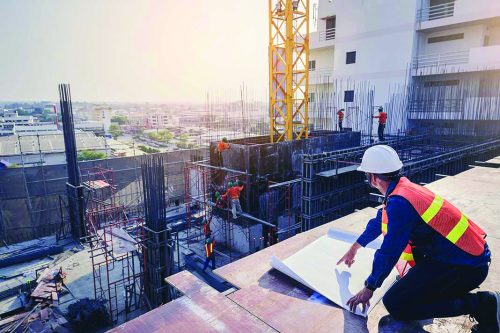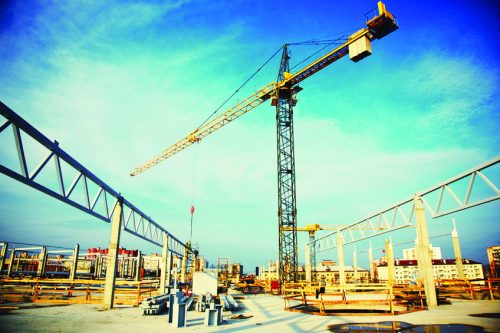The recent opening of the applications for the new Construction Industry Licences has been welcomed by the Malta Developers Association, which has also called for the regulator to implement an efficiency licence application process.
“The introduction of the Construction Industry Licensing Regulations has been widely supported by many stakeholders in the sector. We want to see a fair system being implemented – one that is clear and offers a level playing field to all operators. This is a matter of critical importance for us,” Michael Stivala, President of the MDA stated.
He added that the MDA is taking the new regulations seriously and as a result has decided that any contractors who fail to obtain a licence will stop being members of the Association, and contractors who have their licence revoked due to gross negligence will be dismissed. “The MDA had been lobbying for the introduction of such measures for many years and we are delighted to see that the government has kicked off the process of the licensing of building contractors,” he explained.
“The MDA had been lobbying for the introduction of such measures for many years”
While the majority of serious operators in the industry have supported and welcomed these licensing regulations, the MDA held extensive public consultations industry-wide. “Some operators wanted the regulations to be more stringent, while others considered this process an unnecessary nuisance. This is particularly the case when operators do not have the capacity to meet the new licensing standards. In addition, some contractors are not proficiently literate, which is an issue when faced with the creation and management of documentation and procedures, which they cannot manage,” he said.
Among other requirements, licence applicants will need to carry insurance for the protection of third parties (covering damages to other properties during construction) and another insurance to protect company employees in cases of accidents and injuries.
Mr Stivala reiterated that MDA believes that the introduction of these measures are an initial and important step in regulating the industry.

He explained that the MDA has a vested interest in better regulation of the industry, as this will give rise to improved quality standards, safer workplaces and sites as well as a higher-quality end product. “However, we cannot get to a highly-regulated industry in one fell swoop. This is a process, requiring a transitional approach which will not send shockwaves throughout the industry,” he said.
Mr Stivala said that the MDA was confident that the new licensing regulations will stop cowboy developers from operating. “This will make the industry safer, but it may also give rise to an increase in prices as there will be less availability of operators and the laws of supply and demand will determine market pricing,” he explained.
licence applicants will need to carry insurance for the protection of third parties … and another insurance to protect company employees
Beyond the licensing of building contractors, the MDA is eager to see licensing requirements extend to other subsections of the industry, including plasterers and tile layers. “The MDA believes that the introduction of the contractor licences needs to be part of a wider reform, which incorporates the delicate regularising procedure of the actual construction phase,” he added.
The MDA is calling for reforms in the planning regulations to address the lack of clarity and the presence of grey areas in the current rules which pose challenges for the industry, resulting in significant consequences for landowners, particularly in cases where permits are delayed or denied.

“Developers rely on purchasing land from individuals and families for development purposes. Hence, it is crucial for them to have a clear understanding of what can be done with the land and the permits that can be issued. The valuation of the land is contingent on its potential for development. When the regulations are ambiguous or subject to appeals and lengthy processes, it is the landowners who suffer the most, as their intentions to build are thwarted by uncertain outcomes,” Mr Stivala explained. He added that the cost of land directly impacts the overall cost of apartments, which means that any increase in land prices inevitably translates into higher property prices.
This will make the industry safer, but it may also give rise to an increase in prices as there will be less availability of operators and the laws of supply and demand will determine market pricing
A concerning issue raised by the MDA is the frequent changes in planning rules. “It is essential to establish a stable regulatory framework that remains consistent over a reasonable period,” he said, adding that alterations to regulations have led to aesthetic issues, resulting in a lack of cohesion among different developments in the same vicinity. To maintain the visual integrity of neighbourhoods and ensure harmonious urban development, it is imperative to minimise changes to planning regulations.
“Recently, the Prime Minister expressed his disapproval of construction works being carried out while permits are under appeal. The MDA is advocating for decisions to be made within a shorter timeframe,” he said. Currently, the process can span several years, resulting in increased costs and reduced affordability for potential homeowners. Streamlining the decision-making process would not only benefit developers but also enable the public to access housing at more reasonable prices.

Mr Stivala also mentioned that specific developers are being targeted by numerous non-governmental organisations (NGOs). He distinguished between legitimate objections to projects that do not conform to regulations and cases where particular developers are unfairly singled out. “The focus should be on maintaining a fair and transparent approach, ensuring that the regulations apply uniformly across the industry; avoiding any undue targeting of specific individuals or entities,” he added.
To maintain the visual integrity of neighbourhoods and ensure harmonious urban development, it is imperative to minimise changes to planning regulations
The MDA’s call for clearer and more precise planning rules is aimed at enhancing efficiency, promoting fairness, and maintaining aesthetic cohesion in urban development.
By providing developers with a clear understanding of what can be done with acquired land and ensuring timely decision-making processes, the industry can operate more effectively and contribute to the development of sustainable and visually appealing communities. Balancing the interests of all stakeholders involved, including landowners, developers, and the general public, is essential for the continued growth and success of Malta’s construction industry.

Comment